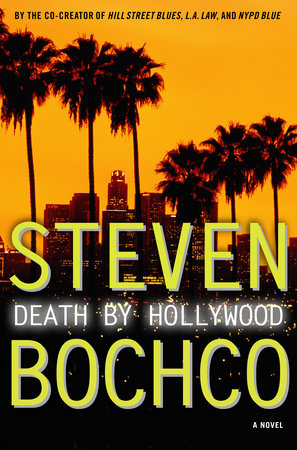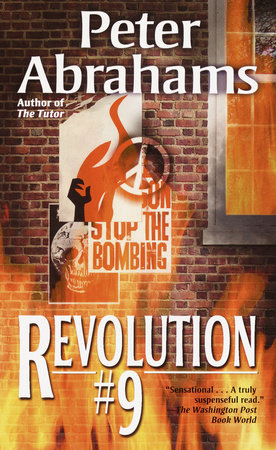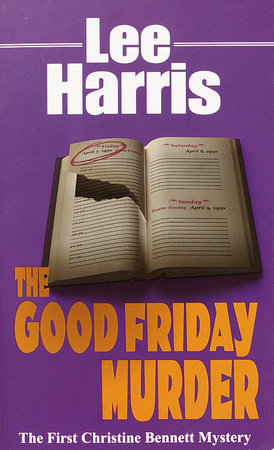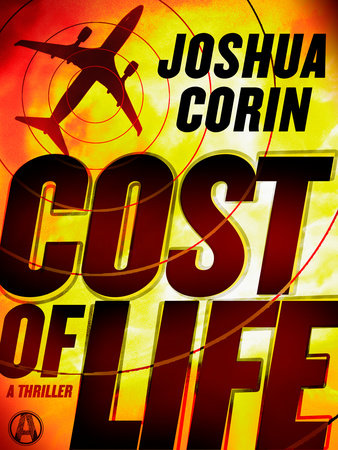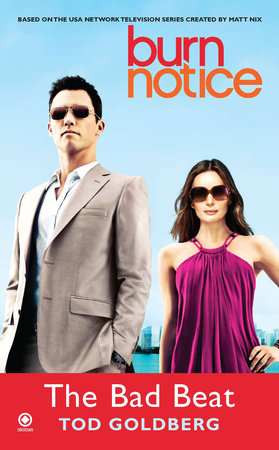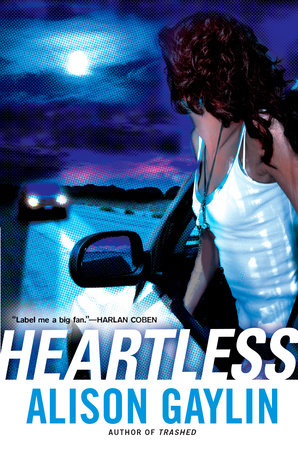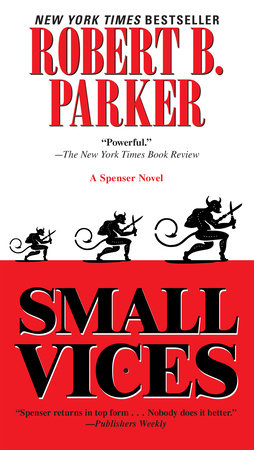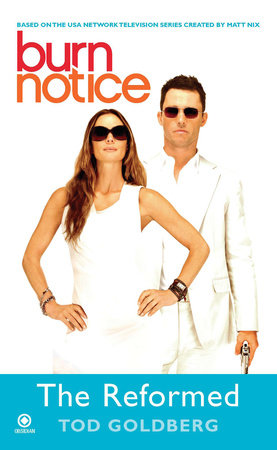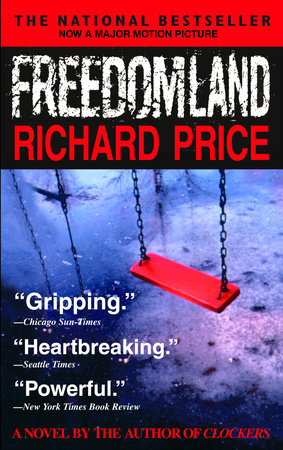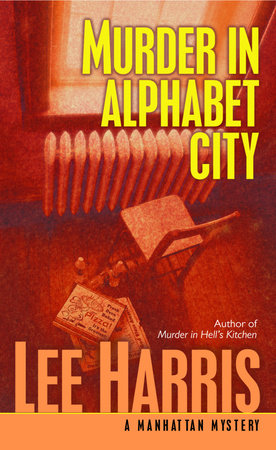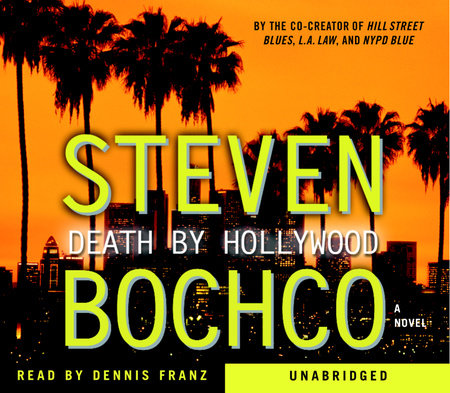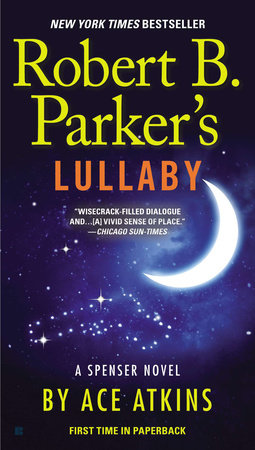Author Q&A
A Conversation with Steven Bochco, author of DEATH BY HOLLYWOOD
Q. What inspired you to write this novel?
A. It started life as an idea for a movie, the treatment for which I wrote as a short story. My friend and colleague David Milch read it and urged me to write it as a novel. Though I’d never written one before, it had always been a fantasy of mine, so I decided to give it a whack. Four months later, I had a first draft completed.
Q. How is this novel different from the kind of story you might tell on one of your TV shows?
A. Obviously, the story is somewhat more complex, it’s considerably sexier, the language is far more colorful, and the narrative isn’t nearly the slave to story that it is in TV. I’ve always thought that a good novel is (among other things) an exercise in the art of digression.
Q. Passages of the novel read like the testimony of an insider who is finally free to tell the truth.
A. Let’s just say that these passages are fiction informed by experience.
Q. You like to write about sex, don’t you?
A. Not as much as I like to have sex.
Q. You also like to write about cops, and there’s a fascinating one in this novel. Is he based on anyone? How do you research police work?
A. Dennis Farentino isn’t based on anyone, but certainly my sense of him is informed by the many cops I’ve known over the years, including, probably most importantly, Bill Clark, one of the executive producers of NYPD BLUE, a retired NYPD homicide detective, and a very special friend.
Q. Were there any books you sought to emulate as you were writing Death by Hollywood?
A. No. The voice and tone of the book just seemed to emerge spontaneously, without any conscious sense of imitation. I’m a huge Elmore Leonard fan, and I think I’ve read most if not all of his books, so if there’s a literary tradition I’m following, I suppose that’s a pretty good one.
Q. You’ve written (and supervised the writing of) a lot of TV scripts in your time. Can you estimate how many you’ve been directly involved in? Which ones stand out in your memory?
A. I’ve written, co-written, or directly supervised the writing of literally hundreds of scripts over the last thirty years in television. The ones that stand out for me are the first few Columbos I wrote, the pilots for Hill Street Blues, L.A, Law, NYPD BLUE, and our two most recent shows, NYPD 20069, which is a cop show set in the future, and MARRIAGE, a one hour drama for HBO which will debut next January.
Q. Did writing the novel require different writing skills or perspective?
A. I suppose it did, though the skills and perspective required to write DEATH BY HOLLYWOOD came naturally to me, and for the four months it took me to write the book, I was able to slip into its voice happily and easily every time I sat down to write.
Q. In Death by Hollywood, one of your characters expresses great admiration for Columbo, one of your first writing writing gigs. Is there a reason why you’ve singled out that TV series?
A. Columbo was the first real success I had as a writer, and Levinson and Link, the creators of Columbo, were great friends and mentors to me. Also, Peter Falk became very special to me, and he and the character were as one. He’s probably the most memorable cop I ever had the privilege to write, and the things that made him so unique are exactly the virtues I extol in the book when I describe Dennis Farentino’s feelings for him.
Q. Charles McGrath, the editor of The New York Times Book Review, has made the case for the cultural primacy of certain works of episodic television. Would you put TV writing on par with fiction and film?
A. Absolutely. There is an ever growing library of great television literature .TV writing is at least on a par with film and fiction, given that it’s both.
Q. Is it possible to have a successful career in Hollywood without resorting to an occasional lie or act of betrayal?
A. Mine is the only one I know of.
Q. There are some classic Hollywood jokes in the novel. Are there any favorites you had to leave out?
A. I love jokes, and seem to have total recall of every joke I ever heard before about 1990. Most of the ones since then aren’t worth remembering. I also think jokes are a wonderful way to illustrate something, or clarify a point. If I ever write another novel, I’m sure a few more of them will find their way into the narrative. Here’s one for the road: An agent dies and, amazingly, goes to heaven. When he gets there, he’s shown around by the admitting angel. After a while, the agent says, "Look, I don’t want to be rude or anything, but I’m still a young guy, and this place seems kind of dull." The angel says, no problem, and pops a tape into a VCR, telling the agent if he wants to be re-routed to Hell, this is what it looks like. He presses PLAY, and the angel is thrilled at the sight of sumptuous feasts, gorgeous, big-breasted women, endless orgies, and every other pleasure imaginable. The agent says, "no offense, but I really think Hell is the place I’d rather be." "No problem," says the angel, walking the agent to the Down Elevator. The agent gets in, thanks the angel, the door closes, and Whoosh! Down he goes. When the door opens, he’s greeted by the worst nightmare one could imagine: fiery hell, people wandering about helplessly, blistered and screaming in pain, people in loin clothes being mercilessly whipped by leather clad guards, moans of anguish everywhere. Greeted by an emissary of the devil, the agent looks around, terrified, and says, "what the hell is going on here? I was up in Heaven, and they showed me a tape of Hell, and there were orgies, and feasts, and naked women all over the place." "Yeah, well," says the emissary of the devil, "that was the pilot. This is the series."
